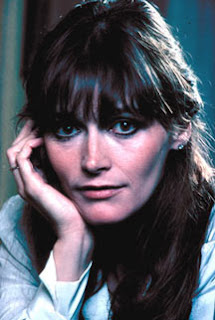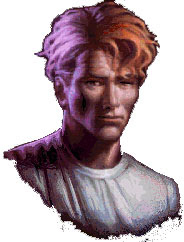A while back, Jenclair posted a question on how we decide what to read next. I thought a little about my own reading choices and came to the conclusion it's all whims and fancies.
Then Jeanette Winterson wrote something along this topic for The Times' Her Word column. Her advice:
Then – and this is the fun bit – proceed to a section of the bookshop in which you think you have no interest, and buy something that catches your eye. I have just been reading Captain Cook’s Journals, which made me read Robinson Crusoe again, which made me think about island narratives, and has run me towards Boswell and Johnson in the Hebrides, Marianne Wiggins’s wonderful novel John Dollar and to Diana Souhami’s award-winning Selkirk’s Island, which made me order Coconut Chaos, her new book on Pitcairn.
For me, this is the way to read and reread books. I don’t want to be told that if I liked X I could read Y, or that people who bought A also bought B. Reading is not a place to be one of a crowd, it is the place to be yourself. In our world of lookalikes and wannabes, being yourself amounts to a social service. Give books for good reasons – because you love them – and buy new books that can become part of a living library, a place where the unexpected still happens.
I'm always at a loss because I really find it hard to sum up quickly what books I like to read. Really, the most accurate reply I can give is this: I read whatever catches my interest at that time.
The thing is, an answer like this often do not satisfy people. It does not allow them to understand or classify you immediately.
I work in a bookstore and you would think people who work in bookstores are good judge of readers and reading habits. Not true. My manager was surprised that I have a pretty good working knowledge of fantasy novels; she thought I was all serious fiction. One of my vendor was caught off guard that my degree was in English Literature; he thought I was all non-fiction.
I guess I shouldn't tell anyone that my graduating thesis was a Bakhtian reading of William Gibson's Neuromancer - Cyberpunk as Cybergothic. (I always imagined Angelina Jolie as Molly Millions.) What will people think of me then?
My friend once told me how her editor, RL, found my Director's love of comic books demeaning. A grown man reading comics? I was amused because I have very little respect for my Director's taste in general - but I have to stand up for the genre and say RL should keep his mouth shut about people who read comics, since he knows very little about it.
We often have assumptions about people and what they should be reading. One of my colleagues once told me she doesn't read fiction because she is a person well-grounded in reality. She was particularly disdainful of speculative fiction. Yet she is in fact one of the most fragile character I have ever met, because she breaks down completely everytime her worldview is challenged.
People in fact, should read as widely as they can. And read what they want to. Forget about the critics or reviewers who tell you what you should or should not read - unless you really trust their taste of course. A friend used to jacket her romance novels with pages from magazines - she was self-conscious about being thought of poorly as a "romance reader." Oh, how we blush.
I hate it when someone remarks, "This is so not you" - about a book I'm reading. Well, I chose it, and I'm reading it - so it is definitely Me. It's just inconsistent with your definition of Me.
It doesn't matter if your reading is a little esoteric. It doesn't matter if no one in your bookclub wants to read Robertson Davies, and no one else seems to share your passion for this funny but wise Canadian author. You can just keep giving away Robertson Davies novels as presents. Birthdays, Christmas, Baby Showers - lots of good excuses for giving away books. Who knows? Maybe some day a friend will finally read your favourite author - and enjoy the experience. They might even pick up other Robertson Davies titles.
I have often thought my reading choices too on the whim, and there can't possibly be any active decision-making behind the books I pick up. But maybe not. Maybe my choices are not as incidental as I assume. Isn't it our spontaneous choices that truly reveal our genuine desires?
So why do I have a book on the history of salt?
We should all follow Jeanette Winterson's advice:
"I began to follow my own eccentricities, which is really the only way to read."
On an ironic note, I recall one of my teacher, Mr C., who came from a Jesuit seminary, training for a life of celibacy and service to his faith. As fate would have it, he met the woman who would become his wife, gave up God and ended up teaching Shakespeare to ignorant eighteen year olds. Mr C is a voracious reader on the subject of true crime and serial killers, and he has heaps of these paperbacks. If our libraries are archives of our longings, what does it say about Mr C?
And I have books on suicide and manic-depressive artists. What does that say about me?
Why care? Just go forth and read whatever you want.
















